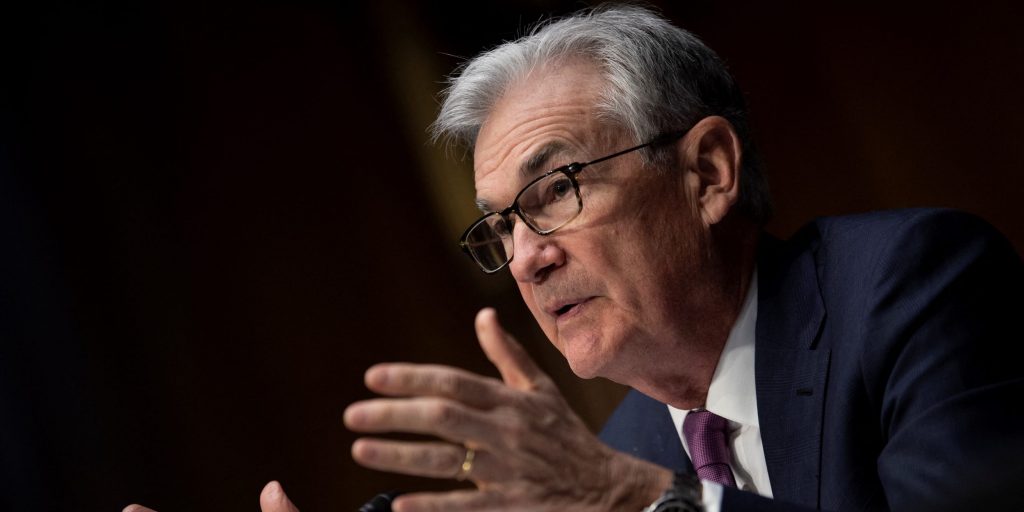- The Federal Reserve only needs to raise interest rates by another 100 basis points in this tightening cycle, Wharton professor Jeremy Siegel told CNBC on Friday.
- The economy is already showing signs of slowing down with the four rate hikes it's issued so far this year, he said.
- The Fed's preferred inflation gauge, the core PCE, came in softer than economists expected for July.
The Federal Reserve needs to raise its benchmark interest rate by just another 100 basis points to fulfill its goal of cooling the US economy to tamp down high inflation, Wharton professor Jeremy Siegel said Friday on CNBC.
"I think we only need 100 basis points more," Siegel said hours before Federal Reserve Chair Jerome Powell was set to deliver a speech on monetary policy at the central bank's symposium in Jackson Hole, Wyoming. Powell was scheduled to speak at 10 a.m. Eastern time.
"The market thinks it's going to be a little more — 125, 130 basis points more. My feeling is we won't need that much because of what I see as a slowdown," Siegel said.
The Fed in September is expected to deliver its fifth rate increase of 2022. The fed funds rate currently stands at a range of 2.25% and 2.75% after starting the year with the low end of the range at 0%.
"I hope that [Powell] recognizes that the amount of tightening that we've put in and are expected to put in between now and year-end, at least 100 basis points, is very much slowing the economy," said Siegel, whose books include include "Stocks for the Long Run: The Definitive Guide to Financial Market Returns and Long-Term Investment Strategies."
The Fed should concentrate on assessing forward-looking data such as "on the ground" real estate prices as those "are actually beginning to go down," Siegel said.
The Consumer Price Index is backward-looking data. "We know the way that index is constructed, housing costs, which are a big factor of core inflation, are very lag in the way they are put into the index."
The Fed remains far off from its 2% inflation target. On Friday, the central bank's preferred inflation gauge, the core Personal Consumption Expenditures Price Index, or PCE, came in at a 4.6% rate in July year over year, and was up 0.1% month over month. The reading was softer than expected, with Econoday's consensus estimates at 4.7% and 0.3%, respectively.
Core CPI in July was 5.9% and the headline inflation rate that includes energy and food prices was 8.5%, easing from 9.1% in June.
This week, the second reading of second-quarter gross domestic product was revised to show a contraction of 0.6%, narrower than the 0.9% contraction in the preliminary reading.











